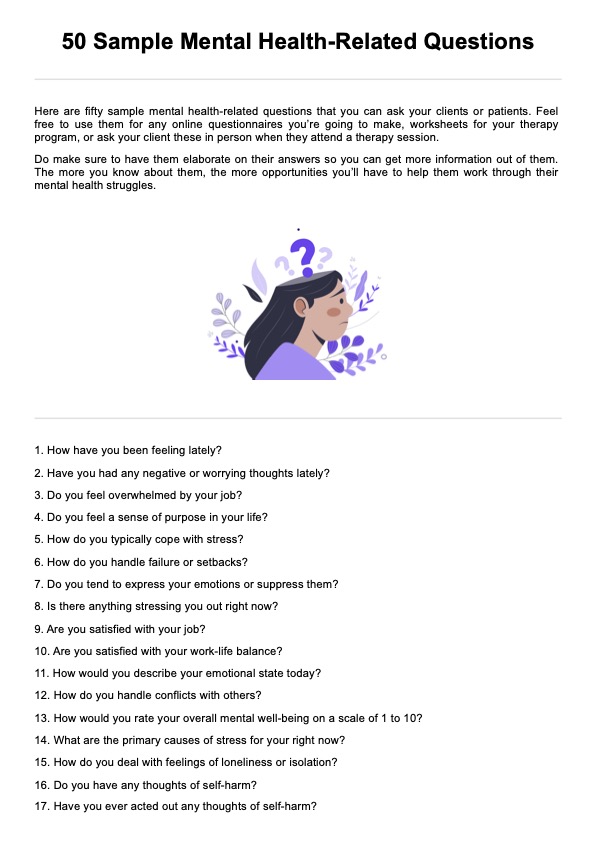Of course. Mental health questions are also used for fun little quizzes online. They can also raise mental health awareness by helping people reflect on their experiences. If you think it can help you gauge yourself or get to know yourself better, go ahead and answer them!

Mental Health Questions
Learn why Mental Health Questions are important and see examples that you can use for your therapeutic practice.
Mental Health Questions Template
Commonly asked questions
In many cases, yes. Many people might find these questions difficult to answer, especially if they are facing mental health challenges or experiencing poor mental health. These questions may ask about personal issues that someone might not necessarily want to talk about. It depends on the person, and it depends on who is asking and why they are asking.
Absolutely not. These questions should help narrow things down for mental healthcare professionals, but the questions themselves cannot make a definite diagnosis. The diagnosis should be based on specific criteria for mental health disorders and how the answers fit them, plus assessment and test results. It is also important to remember that mental illness is often linked with overall physical health, which makes professional evaluation necessary.
If answering these questions makes you realize you may need extra help, you are not alone. You can look for mental health support through support groups, counseling, or therapy. Many organizations like Mental Health America and World Health Organization also offer mental health resources that provide guidance, education, and tools to support your mental wellbeing.
EHR and practice management software
Get started for free
*No credit card required
Free
$0/usd
Unlimited clients
Telehealth
1GB of storage
Client portal text
Automated billing and online payments











